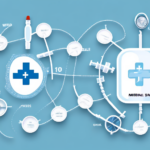Exploring the Benefits of Medical Delivery Companies
Medical delivery companies are rapidly transforming the healthcare industry by providing specialized delivery services that enhance patient outcomes, reduce costs, and streamline healthcare operations. These companies have become an integral part of modern healthcare, ensuring that critical medical supplies reach their destinations safely and efficiently. This article delves into the numerous benefits of medical delivery companies and their role in revolutionizing the healthcare sector.
Transformation of the Healthcare Supply Chain
Specialized and Efficient Delivery Services
Medical delivery companies are revolutionizing the healthcare supply chain by offering specialized, efficient, and cost-effective delivery services for a wide range of medical supplies, including pharmaceuticals, medical devices, and laboratory specimens. Traditional delivery methods often struggled with maintaining the integrity of sensitive medical items, leading to delays and increased costs. By utilizing specialized vehicles equipped to handle specific requirements such as temperature control and secure transportation, these companies ensure that medical supplies are delivered safely and promptly.
Advanced Tracking and Management Technologies
Innovative technologies have been integrated into the operations of medical delivery companies to enhance service efficiency. Real-time tracking systems and mobile applications allow healthcare providers to monitor the status of their deliveries, manage inventory effectively, and reduce the risk of stockouts. According to a Health Affairs report, the implementation of such technologies has led to significant improvements in supply chain transparency and reliability.
Expansion of Service Offerings
Beyond traditional medical supplies, many delivery companies now offer specialized services for medical waste, laboratory specimens, and organs for transplant. This expansion has not only improved the efficiency of the healthcare supply chain but has also played a crucial role in life-saving procedures, such as organ transplants, by ensuring timely and safe transportation.
The Rise and Growth of Medical Delivery Companies
Technological Advancements
Advancements in logistics and transportation technologies have been pivotal in the rise of medical delivery companies. Automated sorting systems, route optimization algorithms, and the use of artificial intelligence have enabled these companies to enhance their delivery capabilities and provide more reliable services. A study by the National Institutes of Health highlights how technology has significantly reduced delivery times and improved accuracy in the medical supply chain.
Regulatory Compliance
Changes in healthcare regulations have necessitated specialized delivery services that comply with stringent guidelines for handling medical products. Medical delivery companies ensure adherence to these regulations, allowing healthcare providers to focus on patient care without worrying about regulatory compliance. This compliance also helps in reducing costs associated with non-compliance penalties.
Impact of Telemedicine
The surge in telemedicine, accelerated by the COVID-19 pandemic, has increased the demand for reliable medical delivery services. Patients now rely on home delivery of prescription medications, medical supplies, and diagnostic tests. Medical delivery companies have adapted to this trend by providing efficient delivery options that support the growing telehealth infrastructure.
Enhancing Patient Outcomes
Timely Access to Critical Supplies
Ensuring timely delivery of medical supplies is essential for effective patient care. Medical delivery companies play a vital role in reducing medication errors and delays in diagnostic testing by providing reliable and prompt delivery services. This timely access is crucial for treatments that require precise timing, such as chemotherapy and insulin administration.
Support for Home Healthcare
Medical delivery companies facilitate the delivery of home healthcare supplies and equipment, enabling patients to receive care in the comfort of their homes. This support reduces hospital readmissions and enhances patient satisfaction by providing essential resources directly to patients’ doorsteps.
Contribution to Vaccine Distribution
During the COVID-19 pandemic, medical delivery companies were instrumental in the distribution of vaccines. Their ability to handle temperature-sensitive shipments ensured that vaccines were delivered safely and efficiently, contributing to the global vaccination efforts and saving countless lives.
Cost Savings and Efficiency Gains
Reduction in Operational Costs
By outsourcing delivery logistics to specialized companies, healthcare providers can significantly reduce operational costs. Medical delivery companies minimize waste, prevent costly errors, and streamline the delivery process, leading to overall cost savings for healthcare institutions.
Enhanced Operational Efficiency
Medical delivery companies implement streamlined processes and advanced logistics solutions that enhance operational efficiency. This includes optimized routing, efficient inventory management, and automated tracking systems that reduce the time and resources needed for supply chain management.
Benefits for Healthcare Providers and Patients
Improved Quality of Care
Medical delivery companies enable healthcare providers to focus on delivering quality care by handling the complexities of supply logistics. This delegation ensures that medical professionals can dedicate more time to patient care, thus improving the overall quality of healthcare services.
Real-Time Delivery Tracking
The ability to track deliveries in real-time provides transparency and reliability for both healthcare providers and patients. Knowing the exact arrival time of medical supplies reduces anxiety related to delays and ensures that critical treatments are not disrupted.
Customized Delivery Solutions
Medical delivery companies offer customizable delivery options such as same-day delivery, after-hours services, and temperature-controlled transport. These tailored solutions meet the unique needs of various healthcare providers and patients, enhancing the overall healthcare experience.
Future Challenges and Opportunities
Regulatory and Cost Pressures
Medical delivery companies face ongoing challenges related to regulatory compliance and cost pressures. Adapting to evolving healthcare regulations and managing operational costs remain critical for sustaining growth in this sector.
Opportunities for Expansion
The future holds significant opportunities for medical delivery companies, particularly in expanding into home healthcare delivery, online pharmacy services, and specialized medical supply logistics. Embracing innovative technologies such as drones and autonomous vehicles could further enhance delivery capabilities and reduce costs.
Adoption of Emerging Technologies
Integrating emerging technologies like artificial intelligence, machine learning, and blockchain can provide medical delivery companies with enhanced data security, improved route optimization, and better supply chain transparency. These advancements will be crucial in addressing future healthcare delivery challenges.
Conclusion
Medical delivery companies are indispensable in the landscape of modern healthcare. They offer numerous benefits, including cost savings, improved patient outcomes, and enhanced operational efficiency. As the healthcare industry continues to evolve, these specialized delivery services will play an increasingly vital role in ensuring that patients receive the care and resources they need promptly and safely.



















